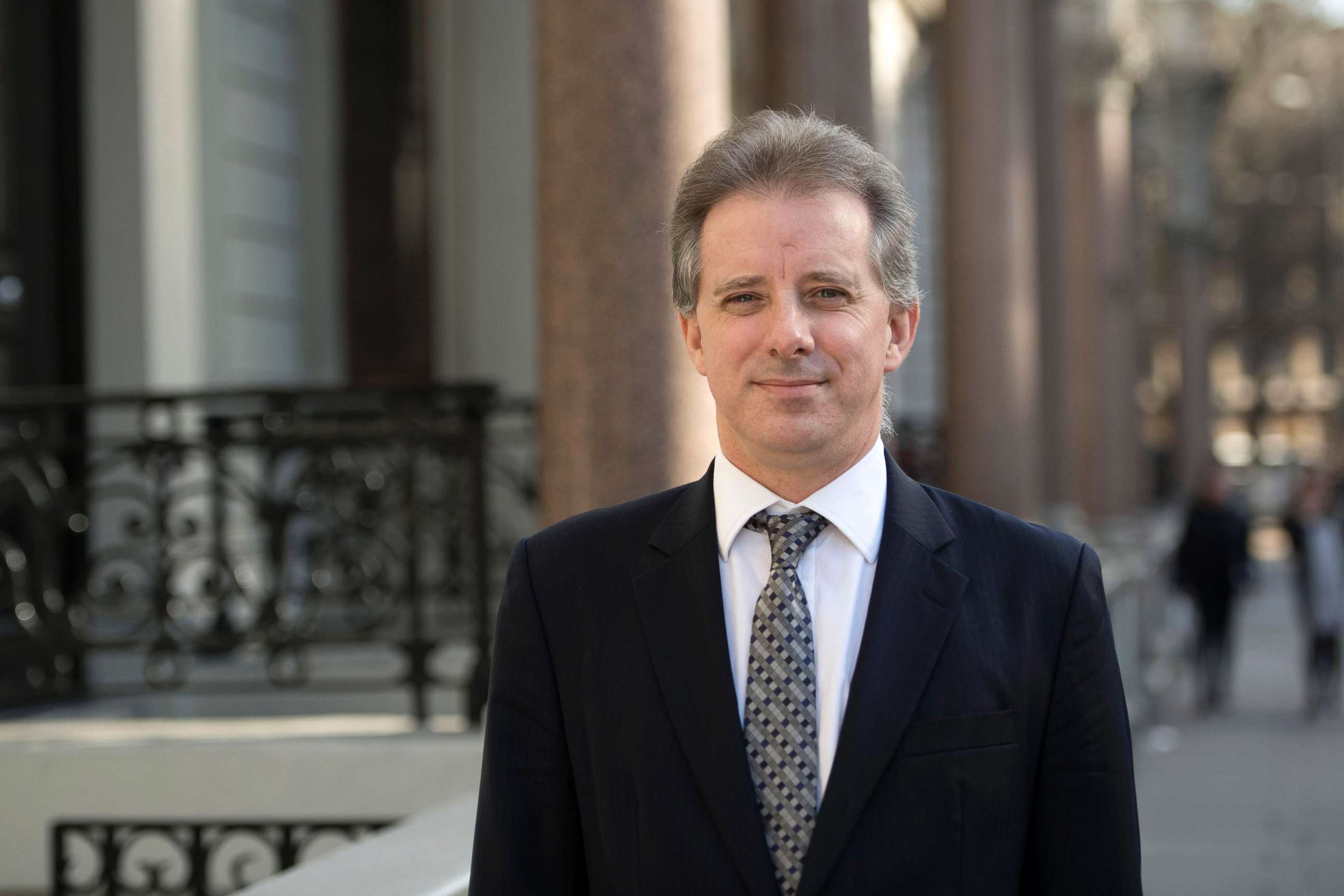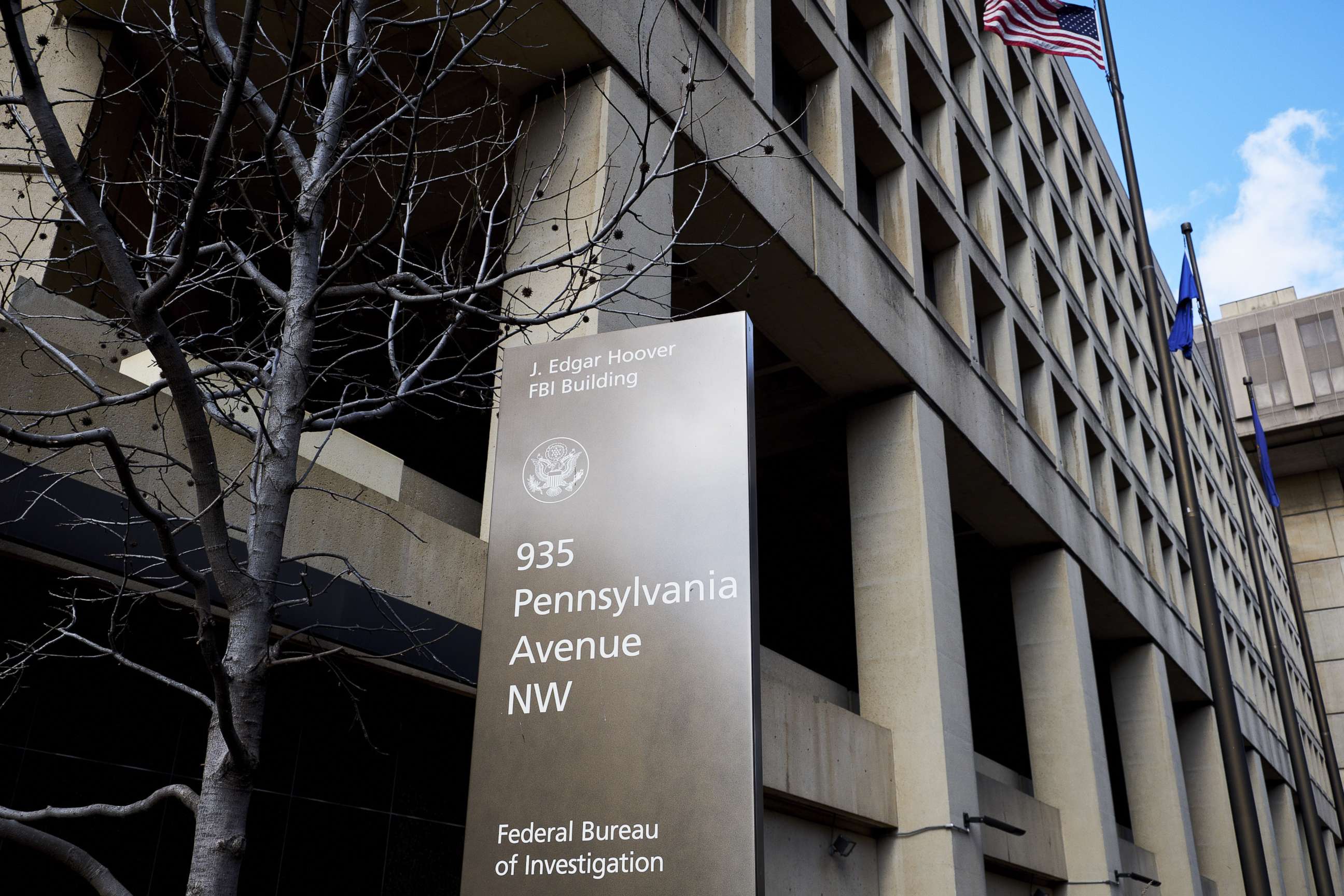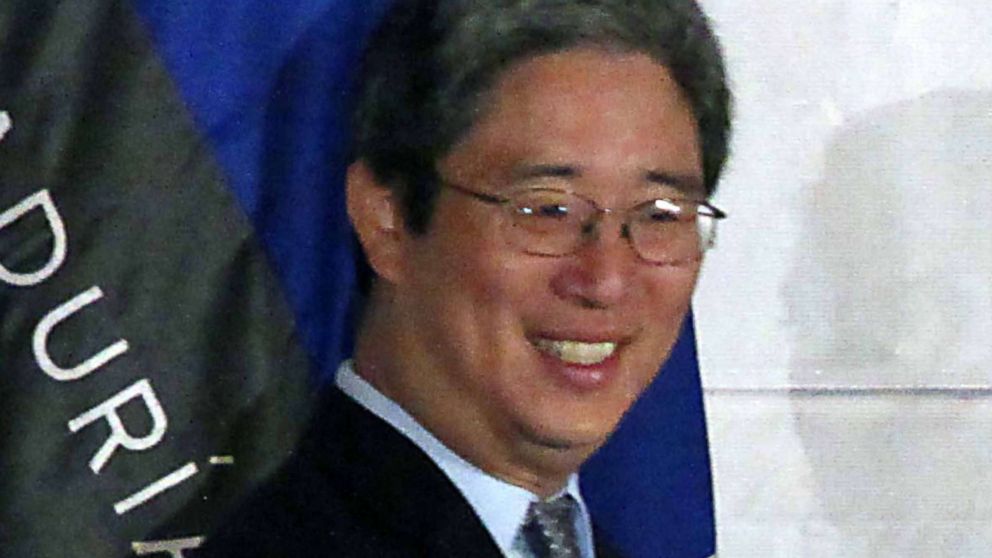He went around his DOJ bosses, but Bruce Ohr offered little to Russia probe, sources say
A veteran Justice Department prosecutor was operating outside his chain of command when he engaged senior FBI officials on a series of salacious and startling allegations tying Donald Trump to Russian operatives, but those interactions had little impact on the FBI’s growing probe into Trump and his associates, according to interviews with multiple sources and an ABC News review of public testimony and documents.
This offers the most comprehensive account yet of the actions taken by Bruce Ohr, whom President Donald Trump wants fired for what the president described as "helping to create the phony, dirty and discredited dossier" that is at the center of Republican attacks on special counsel Robert Mueller's investigation.
By the time Ohr provided the so-called “dossier” to the FBI in late 2016, counterintelligence agents had already received a copy of it, and they were already investigating alleged ties between Trump’s campaign staff and the Russian government, according to congressional testimony.
Ohr was “a non-figure, a non-entity in all of this,” one source familiar with the investigation told ABC News. “I don’t find a real significance to him.”
Trump and his political allies, however, have used Ohr’s connection to ferociously attack Mueller’s investigation as a political “witch hunt.” In the past two weeks alone, Trump has tweeted about Ohr at least seven times, and last week -- while standing before cameras outside of the White House -- he threatened to revoke Ohr's security clearance for "doing what he did."
On Tuesday, Ohr is set to tell his story for the first time, testifying behind closed doors before the House Judiciary and Oversight committees.
Ohr was pulled into the political saga due to years-long relationships he had developed with former British spy Christopher Steele and with Glenn Simpson, a former Wall Street Journal reporter who helped launch a global research firm called Fusion GPS.
“I met Bruce … through organized crime conferences or something like that,” Simpson told the House Intelligence Committee last year.
Ohr was a ranking official in the deputy attorney general’s office and had become the director of the Organized Crime Drug Enforcement Task Force, the hub of the Justice Department’s efforts to crack down on drug trafficking and foreign cartels.
Meanwhile, Ohr’s wife, a Russian linguist named Nellie, was hired by Simpson’s firm to help with its research. Trump has attacked her by name as well.
In early 2016, as Trump was still vying for the Republican nomination to become president, a young campaign adviser, George Papadopoulos, told an Australian diplomat he had reason to believe the Russian government had obtained "dirt" on Hillary Clinton. The diplomat alerted the FBI, which opened a counterintelligence investigation into the matter.
Around the same time, backed by money from Democratic operatives, Fusion GPS hired Steele to look into Trump's ties to Russia. Steele and Simpson had also known each other for years.
By July 2016, Steele had collected an assortment of wild and unverified allegations, connecting Trump and campaign advisers such as Carter Page to Russian intelligence services. Page was already on the FBI’s radar because in a separate case three years earlier, FBI agents overheard a Russian spy say he was trying to recruit Page.
Steele, meanwhile, had been a “reliable” source for the FBI, with his previous reporting having been corroborated by the FBI and then used to prosecute multiple cases, according to FBI documents. And after Steele compiled his “dossier” of allegations, he gave his findings to the FBI official who had been Steele's “handler” for some time, according to sources familiar with the matter.
Coupled with concerns over Page, the FBI investigation that began with an Australian diplomat’s tip expanded into a wide-ranging counterintelligence probe.
“If there were people within the campaign who were colluding or working with the government of Russia, there is very little that would be of more importance to the FBI. ... Any actual collusion or cooperation would be amongst the gravest threats to our democracy,” the man who led the FBI’s investigation at the time, former agent Peter Strzok, recently told a House panel.

While the FBI was working the growing case, Steele was also working another angle to promote his research through Ohr.
According to sources familiar with the matter, in the summer and fall of 2016, Steele flooded Ohr with emails and messages, repeatedly looking to share what he was uncovering about Trump’s orbit. They met multiple times in Washington and spoke on the phone, sources said.
Steele was also sharing some of his political opinions with Ohr. At one point, in September 2016, Steele told Ohr he was "desperate that Donald Trump not get elected and was passionate about him not being president," according to Ohr's notes from the time, quoted by a House Intelligence Committee document.
In late 2016, Ohr visited senior officials inside FBI headquarters to relay what he was hearing from Steele, according to sources.
But, Strzok emphasized, “it was not Mr. Ohr who provided the initial documents.” And even though he knew Ohr from working together over the years, Strzok didn't become aware of the dossier until mid-September 2016, according to his testimony before the House Judiciary and Oversight committees last month.
Strzok told lawmakers he and Ohr spoke as many as five times in late 2016 and early 2017. Still, some of Strzok's superiors inside the FBI never even heard of Ohr until media reports began citing him late last year, sources told ABC News.
Strzok insisted the true nature of what Ohr did – when it is eventually made public – will both "reassure" and "disappoint" concerned Republicans. Strzok has been fired from the FBI for a blizzard of anti-Trump texts he sent to an FBI colleague. Citing orders from FBI attorneys, Strzok wouldn't offer any more details about his interactions with Ohr.
Nevertheless, while Ohr was engaging with Steele and meeting with FBI officials in 2016, then-deputy attorney general Sally Yates and Ohr's other superiors at the Justice Department were completely in the dark about what he was up to, sources said.
“Nobody knew. He didn’t tell anybody,” according to one former Justice Department official who worked with Ohr in the deputy attorney general’s office. “It was completely outside the scope of what he was asked to do. It wasn’t even close to his job.”
Even after the Trump administration took over, the deputy attorney general’s office “never involved” Ohr in the Russia investigation, and he was assigned “no role” in it, Deputy Attorney General Rod Rosenstein recently told lawmakers.
It's unclear why Ohr helped Steele, especially without the knowledge or approval of his bosses, though a source familiar with Ohr's efforts said Ohr was a natural point of contact for Steele because they knew each other and operated in the same professional circles.
But while Ohr was in touch with Steele in September 2016, he was also traveling the country to help state and local officials address the growing opioid epidemic.
“OCDETF Director Bruce Ohr will travel to New Mexico to hold meeting with the leaders of three pueblo communities in the Espanola Valley, which has the highest heroin overdose death rate in the country on a per capita basis,” a Justice Department press release announced at the time.

The following month, the FBI persuaded a federal judge on the Foreign Intelligence Surveillance Court to let agents secretly monitor Page’s personal communications. In seeking those surveillance powers, the FBI submitted a 53-page application laying out why the agency believed Page had been compromised and was working for the Russian government.
The application mentioned Papadopoulos, included information from Steele’s “dossier,” and presented other evidence that remains classified.
Many Republicans have claimed that surveillance powers would not have been sought in the first place without the "dossier." And in a once-secret memorandum on the matter, Republicans on the House Intelligence Committee insisted "clear evidence of Steele's bias ... was not reflected in" the application.
The FBI did, however, note in the application that Steele and Fusion GPS were "likely looking for information that could be used to discredit" Trump, and the Justice Department's inspector general is now looking into whether the FBI should have said more about Steele.
Senior FBI and Justice Department officials, including Yates, signed off on the surveillance. Shortly afterward, in the last days of October 2016, the FBI cut off its official contact with Steele for sharing some of his information with a reporter.
But the FBI continued to cite his information in its applications to maintain surveillance of Page. And Steele continued to stay in touch with Ohr, who would share Steele’s information with the FBI, according to congressional documents.
Described by Simpson as devastated and worried by Trump’s election victory in November 2016, Steele also suggested Ohr and Simpson reconnect, according to what Simpson told lawmakers.
“It was not clear to us whether anyone at a high level of government was aware of the information that Chris had gathered and provided to the FBI,” Simpson testified. “And so Chris suggested I give some information to Bruce, give him the background to all this.”
In the months after Trump won the 2016 election, Ohr met with FBI officials at least twice, the congressional documents show.
According to the Republican-authored memorandum, Ohr "provided the FBI with all of his wife's opposition research." But according to a source familiar with her work, Ohr's wife was not directly involved in the "dossier" project.
Still, even as Rosenstein later continued to approve the applications for secret surveillance of Page, Ohr continued to keep his bosses at the Justice Department in the dark about his links to Steele
But once Rosenstein’s office learned of those links in late 2017, “we arranged to transfer Mr. Ohr to a different office,” Rosenstein recently said. It's unclear how Rosenstein's office learned of the contacts.
Trump and several of his Republican allies are now accusing Ohr of tainting the entire federal government’s probe into whether Trump or his associated worked with Russians to influence the 2016 election.
“Bruce Ohr is at the center of FALSE ALLEGATIONS,” Trump posted to Twitter on Monday, quoting a Republican congressman. “Will Bruce Ohr … ever be fired.”
Ohr has worked at the Justice Department for nearly three decades, much of that time spent in senior positions overseeing gang- and racketeering-related prosecutions. In 2013, the State Department described him as "a Department of Justice subject matter expert" on transnational organized crime.
From 1991 to 1999, he served as an assistant U.S. Attorney in the Southern District of New York.
He also served in private practice, and has a law degree from Harvard Law School, according to government documents posted online.
Neither Ohr nor his wife could be reached by ABC News, and a Justice Department spokeswoman declined to comment for this article. An FBI spokeswoman also declined to comment.




